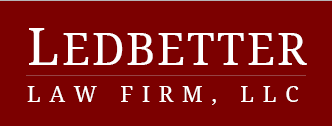Chapter 7 is the only type of bankruptcy case which people ever successfully DIY. Still, failure rates are high. 62% of people who attempt bankruptcy on their own aren’t going to get their discharge, or will suffer significant losses in the process of filing.
In short, you need a lawyer. Even if you think your DIY website explains bankruptcy well enough. Even though the law is online and available for anyone to read. Even though it doesn’t look that hard.
Because when things get complicated, they get really complicated. Here are three things which can create serious snarls for you during your bankruptcy case.
Failing to Understand the Means Test
When filing for Chapter 7 you must complete a whole host of forms:
- 122A-1: Statement of Current Monthly Income
- 122A-1 Supp: Statement of Exemption from Presumption of Abuse
- 122A-2: The Means Test Calculation
The means test determines whether you are even eligible to file Chapter 7. The court is trying to figure out if you could afford to pay even a portion of your debt. If you can, they are going to require you to file Chapter 13.
Many people look at Step 1 but forget or trip up on Step 2.
Step 1 is all about whether your income is lower than the state median income. It needs to have been lower than the median for the past six months, and you should have no reason to assume it will increase. This is the easy part: you look at your income, you find the Missouri chart, and you compare the numbers.
Step 2 is all about documenting your expenses. You have two kinds: “allowable expenses” and “discretionary income.”
An expense is “allowable” if it helps you survive: food, clothing, rent or mortgage, medical bills, and utilities.
Everything else is discretionary.
The courts scrutinize these schedules. Miscategorizing entries is common, and so are mistakes. They’re also looking at your allowable expenses and comparing your entries to the norms for the area. If it’s normal, in St. Louis, for a household of your size to spend $500 on food every month then the court is going to question your $1000 schedule entry.
Thus their determination of your discretionary income and your determination could be very different. Your discretionary income must be low enough to pass the test as well, or the court will determine that you can afford to file Chapter 13.
Improper Money Moves
What you’ve done, financially, prior to your bankruptcy can matter just as much as the state of your paperwork. If you’ve recently gone on a spending spree with credit, or have recently sold your house, then you might have to wait before filing or risk being accused of fraud.
An attorney can help you identify potential trouble spots and generate a strategy for them that can help you.
The last thing you want to do is file on your own, only to learn that you did something innocent with your money that will now lead to a criminal investigation and charges.
Poor Asset Management
Some of your home and car equity is exempt, and in some cases you may be able to use that to protect your assets. These exemptions can help you hold on to all kinds of property, including retirement accounts.
Fail to file these exemptions properly, and you could lose your home or your car when you could have kept them.
Anticipated Receivables
If your finances are in trouble because of a personal injury and you’re embroiled in a case, then your eventual settlement would be an anticipated receivable. Divorce settlements and inheritances can also fall into this category.
These receivables can plunge your Chapter 7 case into limbo. The trustee will want to take that asset and distribute it to creditors. They won’t grant you your discharge till it comes in.
Your attorney might have maneuvered you into a position where this wouldn’t be a problem, or advised you file Chapter 13 in the first place (a case type that really does require an attorney, since 100% of debtors who attempt it alone fail to get their discharge).
Either way, you’d have been better off.
If you’re considering bankruptcy, an attorney won’t cost as much as you think. Contact Ledbetter Law for a free consultation. We’ll be happy to discuss how we can make our legal services affordable for you.
See also:
How to Avoid Accusations of Bankruptcy Fraud
